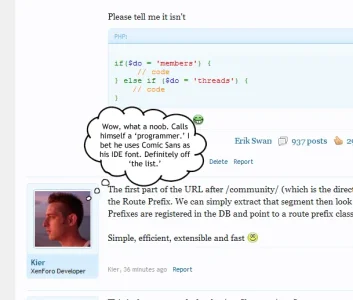AndyB
Well-known member
I hope there will be an option in the admin cp to choose Standard URLs. I really dislike Friendly URLs and hope we are not forced to use them on our own forums.
Perhaps Kier or Mike could provide and example of what the Standard URL would look like to display the following:
1) a forum
2) a thread
3) a post within a thread
4) an attachment
Thank you.
Perhaps Kier or Mike could provide and example of what the Standard URL would look like to display the following:
1) a forum
2) a thread
3) a post within a thread
4) an attachment
Thank you.
Upvote
0
